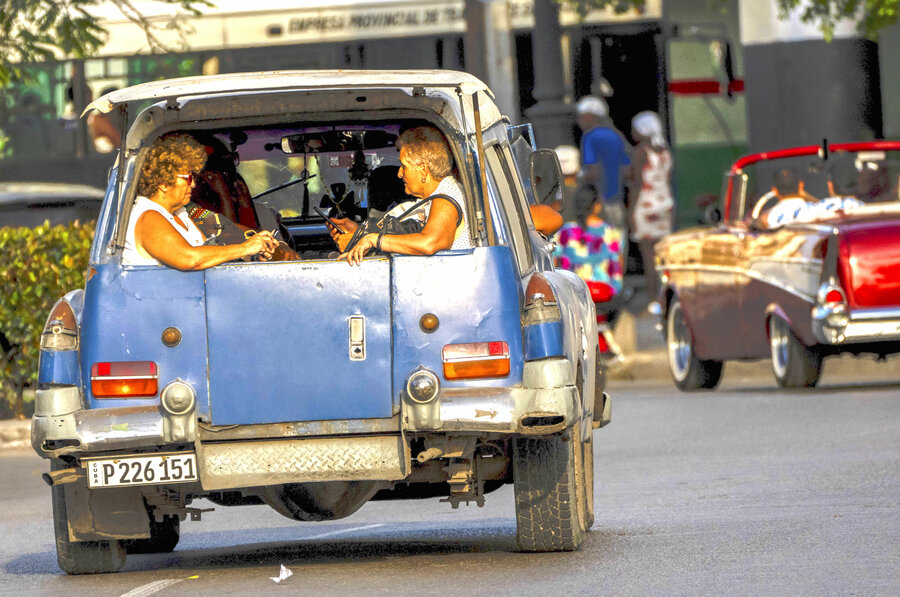A May Day of mental liberation in Cuba
Loading...
Authoritarian regimes seldom pass up opportunities for extravagant patriotic pomp. So when Cuba’s leader, Miguel Díaz-Canel, canceled the May Day celebrations in Havana today for only the third time since 1959 (the first two times were during the pandemic), the move begged the question why.
The Cuban president blamed acute fuel shortages caused by U.S. sanctions. In years past, the government has bused in millions of workers from the hinterlands to pack the capital.
But the real reason may be something deeper – the people’s demand for freedom in response to severe economic crisis and repression. As one Cuban tweeted about the decision: “Good idea. An expensive celebration makes a mockery of the people in a time of shortages. Just get on the streets & shout what you really think!”
This mental liberation – and the government’s fear of it – is increasingly evident in this communist dictatorship. Since Mr. Díaz-Canel rose to power in 2018, his tenure has been marked by economic decline and iron-fisted intolerance. Food prices have soared, the currency has tumbled, and inflation hovers at 200%. A new penal code criminalized dissent. Roughly a third of the population has tried to emigrate since late 2021.
Those who have stayed are pushing back. Voter turnout plummeted in the largely meaningless municipal elections last November. One in four abstained in the parliamentary ballot in March that gave Mr. Díaz-Canel a second term (a foregone conclusion, since opposition candidates were barred from the ballot). Cubans turned out in mass protests in July 2021 over the government’s mishandling of the pandemic, and then again last fall over acute electricity shortages.
In a country long shaped by collectivist thinking, hardship is forging new racial unity as Cubans seek refuge in the country’s unique blend of African spirituality and Catholicism. Santería, as it is called, is “so decentralized and it allows the individual believer or practitioner to make it what they need it to be,” Katrin Hansing, an anthropologist in Cuba for City University New York, told The Associated Press last month.
Mothers have become another source of political resistance amid the shortages of daily needs, filling a space left open by the government’s repression of opposition parties. “Mothers feel the effects that certain policies or certain government inaction might have on their children,” said Amelia Calzadilla, who ignited a movement with a Facebook video asking the government to run a gas line to her block in Havana, in an interview with Al Jazeera.
The odd stillness in Revolution Square on May 1 isn’t the only sign that the government feels the pressure of discontent. In March, for the first time, it let Cuban baseball players who emigrated to the big leagues in the United States play on the national team at the World Baseball Classic.
That concession sent a signal that the aspirations of ordinary Cubans may be stronger than the regime’s tools of repression. “A country needs to be a place where people can have a beautiful life,” said Beatriz Luengo, director of a new documentary about “Patria y Vida,” a hip-hop song that has become an enduring anthem of change since the 2021 demonstrations. The title, “Country and Life,” is a play on the ruling Communist Party’s slogan “Country or death.”







